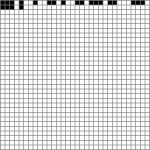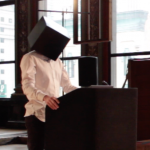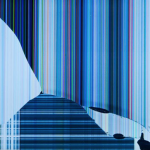electropoetics
Histories of the Future

For Patrick LeMieux, the future of electronic literature is not before us, and instead entails an investigation of the past--of the unknowable territories we collaborate with through e-lit.
Reading the Wind
In his video-poem "Reading the Wind," Dave (Jhave) Johnston identifies the current environment for electronic literature, and in doing so, claims the impossibility of knowing its future.
A Tag, Not a Folder

The "electronicness" in literary writing, Ian Hatcher suggests, is more of a cognitive disposition, an atmosphere or condition that is present regardless of the print/screen/pen(cil)/paper medium one inhabits.
At the Time of Writing: Digital Media, Gesture, and Handwriting
"At the Time of Writing" considers the role of proprioception and the embodied memory of writing and gesture as a critical component of readerly practices. Anna Gibbs and Maria Angel examine a series of works of born digital literature that use representational techniques to evoke an "ethos of touch" that is critical to the experience of the work. Gibbs and Angel conclude that feeling is key to the process of meaning-making, and that experimental interfaces foreground the importance of the body in literature.
The Politics of Plasticity: Neoliberalism and the Digital Text

In this essay, Davin Heckman argues that works of electronic literature often provide occasions for cultivating attention in a mutable cultural landscape. Through readings of John Cayley, YHCHI, Rob Wittig, and Richard Holeton, Heckman points to a poetics of technical estrangement by which new media is opened up to deliberative reading, and thus presents contemporary readers with the opportunity to develop critical practices appropriate for the conditions of neoliberalism.